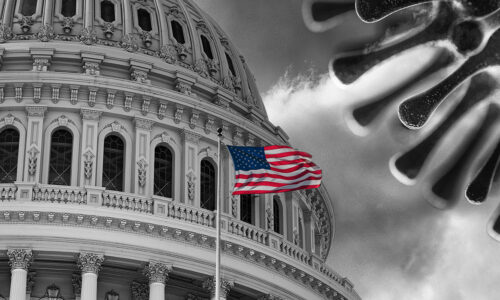Beware of cognitive biases
When an event occurs that is as serious as it is unprecedented, it’s very hard to keep a cool head as we try to make sense of it: our cognitive biases come between our perception of the facts and our ability to think. For proof, look no further than the Covid-19 pandemic.
 Olivier Sibony traces the first two months of the Covid-19 crisis by examining the influence of our biases. While the virus was still smoldering, there were calls for caution to calm the growing feeling of panic. The panic was attributed to the well-known bias of overestimating low-probability events. Unfortunately, however, the improbable actually happened and waves of biases followed in quick succession: the inability to accept exponential growth; the assimilation of an unknown phenomenon to a known phenomenon (“it’s a type of flu” in Europe or “it’s a form of SARS” in Asia); outgroup bias (the same thing can’t happen to us because we’re not like them); overconfidence in our ability to predict the development of the epidemic, and imitation bias (“everyone around us is behaving as if nothing is happening; they can’t all be wrong”).
Olivier Sibony traces the first two months of the Covid-19 crisis by examining the influence of our biases. While the virus was still smoldering, there were calls for caution to calm the growing feeling of panic. The panic was attributed to the well-known bias of overestimating low-probability events. Unfortunately, however, the improbable actually happened and waves of biases followed in quick succession: the inability to accept exponential growth; the assimilation of an unknown phenomenon to a known phenomenon (“it’s a type of flu” in Europe or “it’s a form of SARS” in Asia); outgroup bias (the same thing can’t happen to us because we’re not like them); overconfidence in our ability to predict the development of the epidemic, and imitation bias (“everyone around us is behaving as if nothing is happening; they can’t all be wrong”).
Nor should we forget the formidable retrospective bias: we forget the climate of intense uncertainty that surrounded the crisis at its outset. Our minds find it difficult to avoid these “thought shortcuts,” which give the illusion that we’re in charge of a situation that it would probably be better to admit we have no control over.
To go further: “Biais cognitifs et crise du COVID-19” by Olivier Sibony (HEC Paris Executive Education, 7 April 2020)
© Copyright Business Digest - All rights reserved




